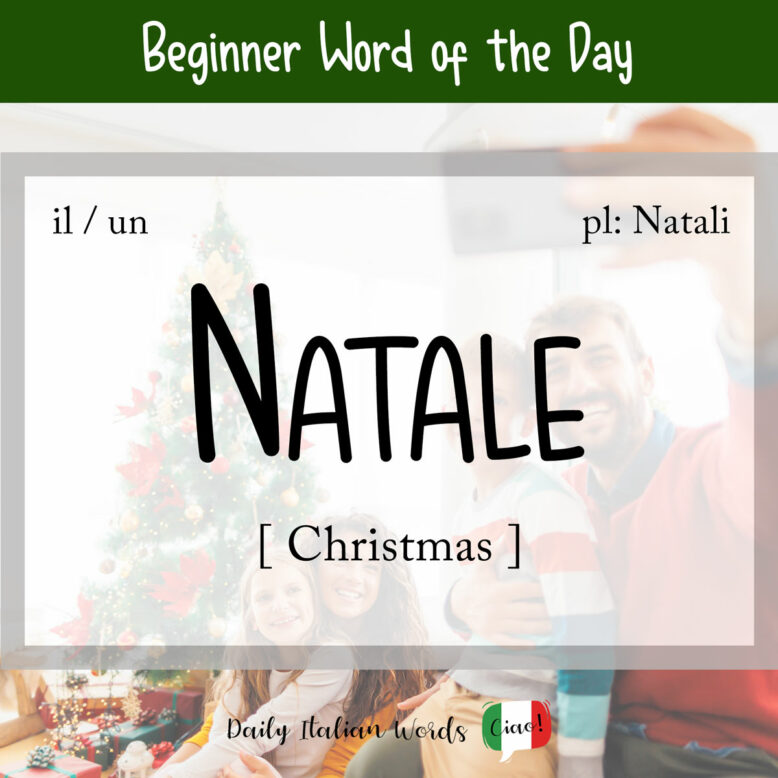Christmastime is upon us yet again, and if you are studying Italian, you may well be wondering what Christmas is called in Italy!
Natale
/na·tà·le/
(masculine noun)
Christmas

Unlike the English word Christmas, there is no explicit mention of Christ, but instead a direct reference to his birth (nascita). Indeed, the etymology of the term Natale can be traced back to Latin Natāle(m), an ellipses of diem natālem Christi (“the day of the birth of Christ”), which in turn comes from the Latin adjective natalis, in the sense of “something concerning birth“.
Some common terms associated with Natale include:
- Babbo Natale = Santa Claus (literally ‘Father Christmas’)
- l’albero di Natale = Christmas tree
- il giorno di Natale = Christmas Day
- la vigilia di Natale = Christmas Eve
- Buon Natale! = Merry Christmas!
È arrivato il Natale!
Christmas is here!

Outside of the Christmas sphere, natale is predominantly used as an adjective meaning “of one’s birth” or “native” as in the terms città natale (hometown), paese natale (native land) and anno natale (birth year). In literary Italian, however, it also refers to “the day of one’s birth” or, in its plural form natali, birth or origin.
A popular proverb in Italian is Natale con i tuoi, Pasqua con chi vuoi which literally translates as Christmas with your family, Easter with whoever you want. I’m not sure I’d agree, but who’s to argue with an age-old saying! 😉
Heather Broster is a graduate with honours in linguistics from the University of Western Ontario. She is an aspiring polyglot, proficient in English and Italian, as well as Japanese, Welsh, and French to varying degrees of fluency. Originally from Toronto, Heather has resided in various countries, notably Italy for a period of six years. Her primary focus lies in the fields of language acquisition, education, and bilingual instruction.


